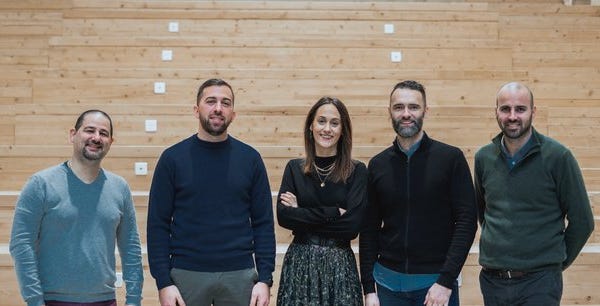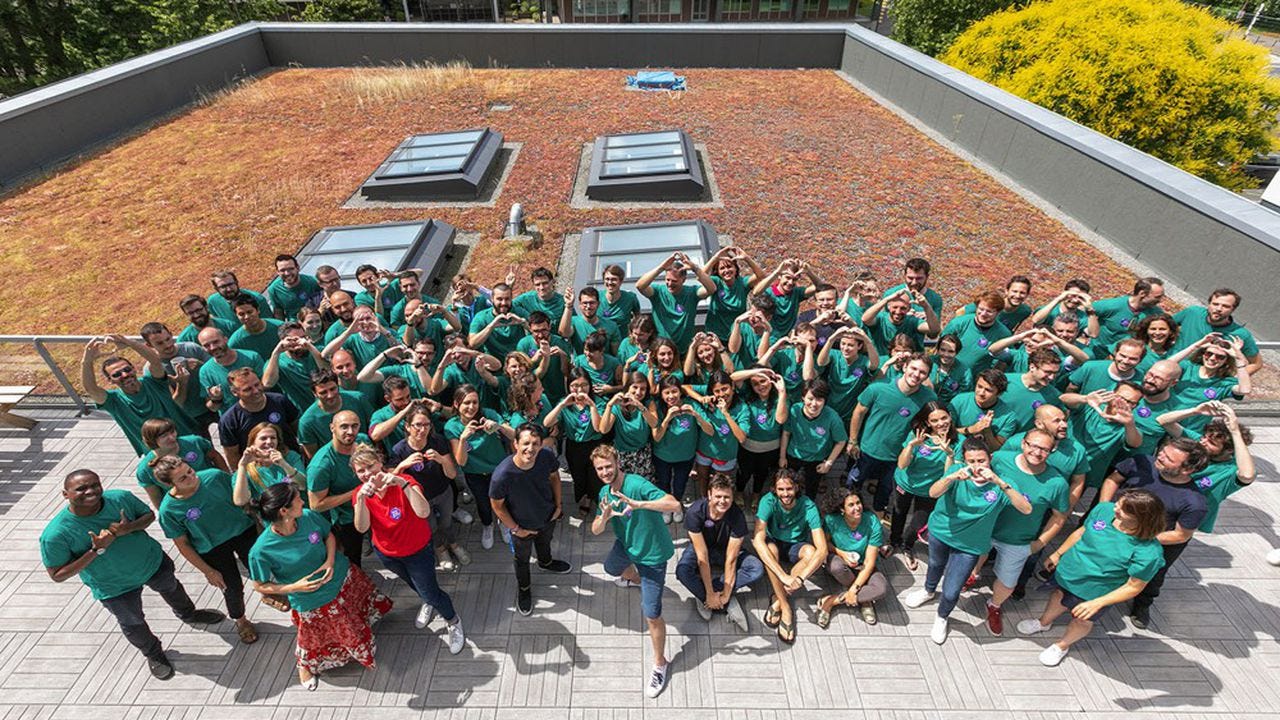Sigfox And The Risky Business Of Startup Heroes
As co-founder Ludovic Le Moan exits Sigfox, a lesson about a young ecosystem relying too much on any single startup for promotion.
Sigfox has loomed large on the French Tech landscape since the moment I arrived in France in 2014. Just a few months after moving to Toulouse, this unheralded local startup announced it had raised a then-record round of $115 million for its IoT network.
As I would write a couple of years later, just after the company raised another $160 million in November 2016: “French IoT unicorn Sigfox carries hopes of a nation hungry for a global startup hero.” More than 4 years later, it’s hard to remember just how shocking it was that Sigfox and BlaBlaCar were raising venture rounds of 9 figures.
Their insurgent success had made business leaders giddy, producing one of my all-time favorite bits of French Tech theater. At the BFM awards in November 2015, the organizers pulled the heads of France’s three unicorns, including Sigfox CEO and co-founder Ludovic Le Moan, onstage as a woman pranced around on a “unicorn.”
I like to think that the French Tech ecosystem has outgrown such silliness. But the figure of Le Moan still loomed large for several years. He was a dynamic figure, brash, and fiercely proud of France and its potential. As the nation sought to promote its startup prowess, Le Moan and his company figured prominently in that messaging.
That’s why, despite the turmoil that has surrounded Sigfox over the past year, it was still a bit of a shock yesterday when the company announced that Le Moan was out as CEO. He will be replaced by Jeremy Prince who has been President of Sigfox USA since March 2019.
“Jeremy’s success and experience in leading companies through the evolution of their business models was a deciding factor in our highly selective process that included several external candidates,” said Anne Lauvergeon, Chairman of Sigfox, in a statement. “The board is confident that Prince with Franck Siegel as Deputy CEO will efficiently carry out Sigfox’s mission of digitizing the physical world while remaining fully committed to delivering the benefits of IoT in a manner that respects and sustains our environment.”
In a more subdued statement, Le Moan added: “I wish the very best to Jeremy and I am confident that he will lead Sigfox to the next level.”
Falling Star
It’s unclear what, if any, role that Le Moan will have in the company going forward. But his ending at Sigfox is an ignominious one. And it should serve as a cautionary tale about hitching one’s promotional wagon too closely to any one startup or founder.
Cracks in the Sigfox story began to appear a couple of years ago. While the company has created a lot of capacity in its communication networks for IoT devices, the number of subscribers wasn’t meeting milestones. A couple of people I knew well and respected at fairly high levels left the company and there were broader rumblings around turnover. Last year, Sigfox announced it would sell several of the networks it had built, including one in Germany, the U.S., and France.
Then, last September, Sigfox cut 47 of 400 jobs. A headline in Les Echos noted that Sigfox was turning “a painful corner.” The IoT revolution of connected objects Sigfox had hoped to ride had simply not happened.
Following the company’s annual conference in November, I spoke with Sigfox VP of business development Ajay Rane who said he believed the company had learned some critical lessons after a couple of turbulent years and was finally on the right path. It would now focus on delivering value from IoT data as well as supporting communications of devices for specific areas like logistics.
“Moving into 2021, I think we have a very clearly articulated corporate strategy and focus,” Rane said. “And we need to just line up behind that and not only focus on our strengths but also learn to say ‘no’ more and more, where we really believe it’s not a core competency or strength. It’s very difficult for small companies to not chase the next shiny object. We need to be disciplined and to be focused.”
But then, independent news organization Mediacities published a tough two-part series in December about Sigfox’s troubles and accusations of mismanagement by former employees, including what some considered “toxic” behavior by Le Moan.
In a statement to Maddyness, a Sigfox official said yesterday that the departure of Le Moan had no relationship to the Mediacities stories and that he "had made the decision to leave on his own several months ago.” But when Mediacities had spoken to Le Moan for its series back in October, he brushed aside any rumors that he might be leaving the company.
Maddyness also noted that Franck Siegel “was called upon at the end of 2020 when it came to extinguishing the fire” caused by the Mediacities investigation. Siegel will now become Deputy CEO.
Hopefully, the changes will bring some stability to Sigfox and allow it to pursue its new mission. Realizing its previous lofty ambitions may be out of reach, and its unicorn status is probably just a distant memory. But neither should anyone be rooting for its collapse.
These days, French companies raising more than $100 million rounds are no longer uncommon. France has a far larger stable of startups it can brag about, and therefore it doesn’t have to rely too heavily on any single one to serve as a role model. And so the stumbles of Sigfox won’t likely have the same impact on France’s startup image as they would have had a couple of years ago.
There is still a strong desire to promote the new generation of companies and celebrate examples that demonstrate the potential of a surging French Tech ecosystem. That’s perfectly understandable.
But Sigfox is a good lesson about the risks inherent in putting any one company on too high of a pedestal.
In other news…
Marlin Equity Partners, an American private equity fund, announced that it had acquired a majority stake in the Nantes e-commerce startup Lengow, which helps clients optimize the visibility of their products online:
“It was the right time to change the capitalization table," Lengow co-founder Mickael Froger told Les Echos. “VCs are there to support companies in their growth during their first five or ten years. Private equity must take over once the foundations are well established."
The big picture: With the European IPO market still weak, and a lack of tech giants like Facebook and Google to gobble up local startups, private equity with its deep pockets is emerging as a tempting source of exits. That’s still a somewhat new phenomenon for French companies, and it comes with its own pros and cons. French founders will need to learn how to navigate those choices.
Funding News




Journalism Demystified: How do journalists do their job? How do they make decisions about what stories to cover? How do they get the information they need?
Book an appointment with me at Superpeer and I'll answer your questions about journalism and the media and explain my workflow to help you better understand the perspective and challenges of journalists.
If you’re a subscriber to this free email, I’ll send you a code for a 20% discount. If you’re a paid subscriber, you can get a code for a 50% discount.
If you’re enjoying The French Tech Journal, please support the project by forwarding it to friends and sharing it on your social networks. You can comment on this post or by replying to this email. And if you have ideas for stories, tips, or just want to harass me, send me an email: chris@frenchtechjournal.com.









